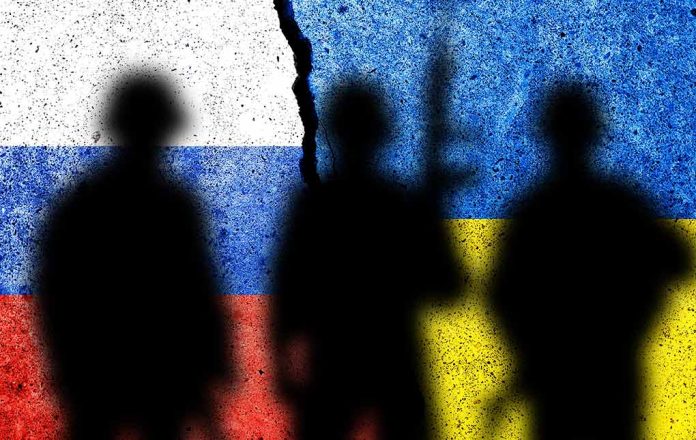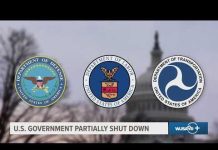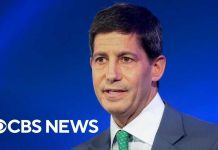
Amid concerns about NATO membership delays, President Volodymyr Zelenskyy suggests nuclear alternatives to boost Ukraine’s security in a volatile geopolitical climate, but a U.S. official has already thrown cold water on the idea.
Key Takeaways
- Zelenskyy proposed nuclear armament for Ukraine if the country’s NATO membership continues to be delayed.
- Zelenskyy has questioned Ukraine’s 1994 nuclear disarmament for its ineffective security assurances.
- U.S. is unlikely to support Ukraine regaining nuclear capabilities, according to Ukraine envoy Keith Kellogg.
- NATO is urged to increase defense spending in response to Russian aggression.
Ukraine’s Nuclear Dilemma
Ukrainian President Volodymyr Zelenskyy has suggested that if NATO membership is delayed, Ukraine should be given nuclear weapons. This proposal aims to serve as a deterrent against potential future Russian invasions, reflecting mounting frustration over ineffective assurances from past agreements. Ukraine had previously relinquished its nuclear arsenal in 1994, relying on security commitments from global powers such as Russia, the UK, and the US—commitments perceived as breached by Russia’s actions.
Efforts for international backing have intensified. Zelenskyy calls for missile systems and robust financial aid to build Ukraine’s military, highlighting concerns that prior diplomatic agreements have failed to ensure national security. Ukraine’s NATO application, initiated amid Russia’s full-scale invasion in 2022, remains pending, with key NATO members like the U.S. and Germany hesitant to extend membership.
Zelenskyy wants nukes or NATO; Trump special envoy Kellogg says 'slim and none' chance https://t.co/78grdNfXid
— Fox News (@FoxNews) February 7, 2025
The Geopolitical Chessboard
A U.S. official offered his response to Zelenskyy’s suggestion, and his answer was blunt. Retired Lt. General and Ukraine envoy Keith Kellogg stated that the chance of the U.S. supporting Ukraine’s nuclear re-armament is slim.
“Let’s be honest about it, we both know that’s not going to happen,” Kellogg told Fox News Digital.
Despite Ukraine’s criticism of its nuclear disarmament under the 1994 Budapest Memorandum, diplomatic winds have shifted. Meanwhile, ongoing discussions suggest that while NATO remains the preferred security pathway, Ukraine is leaving no stone unturned in seeking security solutions.
Amid tensions, diplomatic engagement with Russia remains elusive. Ukrainian willingness to negotiate directly with Russian President Vladimir Putin meets an unscheduled reality. Simultaneously, voices for peace propose alternatives, with former U.S. President Donald Trump speculated as a potential mediator. Despite these dialogues, policy and security experts stress NATO’s strategic importance.
Strengthening NATO’s Frontline
As Ukraine navigates these complex challenges, NATO stands at a critical junction. Secretary General Mark Rutte campaigns for enhanced defense investments from member states such as the U.K. and Germany. The threat posed by a potential Russian victory echoes through diplomatic corridors, warning of a consequential geopolitical error. Former NATO heads encourage shared defense responsibilities, urging greater spending to uphold collective security.
The situation remains fluid. As Zelenskyy keeps the lines open for potential peace talks, NATO continues to evaluate its strategic posture. The alliance’s commitment to ensuring deterrence capabilities reflects a conscientious approach to mitigate Russian aggression, safeguarding against escalations that could redefine the landscape of European security.
Sources
- Give Ukraine nuclear weapons, says Zelenskyy
- Ukraine should receive nuclear weapons if NATO entry is delayed, Zelensky says
- Zelenskyy wants nukes or NATO; Trump special envoy Kellogg says ‘slim and none’ chance













